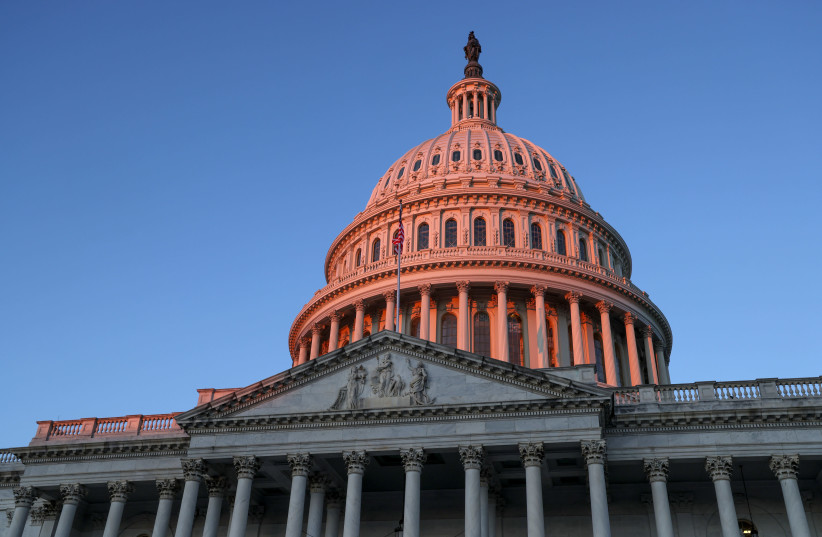Republicans in the US House of Representatives voted on Monday to abolish the Internal Revenue Service (IRS) and replace income tax with a national sales tax.
The move was made by newly-elected US House Speaker Kevin McCarthy as part of the concessions he was forced to make to several Republican holdouts who refused to vote for him, which had resulted in a deadlock in voting for a new speaker 15 times.
The bill itself, dubbed the Fair Tax Act, was pushed forward by newly-elected Georgia Rep. Buddy Carter with the backing of other notable Republican representatives Andrew Clyde (Georgia), Kat Cammack (Florida), Scott Perry (Pennsylvania), Barry Loudermilk (Georgia), Bill Posey (Florida), Ralph Norman (South Carolina), Jim Banks (Indiana), Thomas Massie (Kentucky), Bob Good (Virginia), Gary Palmer (Alabama) and Jeff Duncan (South Carolina).
Why do the Republicans want to defund the IRS?
In a statement, Carter explained that the income tax system has failed Americans and that the Democrats' Inflation Reduction Act passed in Congress in 2022 would have only helped the IRS hire tens of thousands of new people. This is something Republicans have long been opposed to, with Louisiana Sen. John Neely Kennedy has said it would give the IRS "more agents, or soldiers, than the entire Israeli army."

In particular, Carter argued that the Inflation Reduction Act would be harmful to middle America and small businesses.
"Instead of adding 87,000 new agents to weaponize the IRS against small business owners and middle America, this bill will eliminate the need for the department entirely"
Georgia Rep. Buddy Carter (Republican)
"Instead of adding 87,000 new agents to weaponize the IRS against small business owners and middle America, this bill will eliminate the need for the department entirely by simplifying the tax code with provisions that work for the American people and encourage growth and innovation," he said. "Armed, unelected bureaucrats should not have more power over your paycheck than you do."
Indeed, Republicans have had many issues with the Inflation Reduction Act and claim that many of the goals put forth by US Treasury Secretary Janet Yellen will only harm Americans.
This is something that the Biden administration denies.
In an official statement, the White House on Monday fired back at the Republican congressmen's push, noting that the IRS wouldn't be targeting households with below-$400,000 yearly income.
Rather, the Inflation Reduction Act and Yellen's plans were designed to enforce compliance with the law among those who cheat on or evade their taxes.
The Fair Tax Act "protects wealthy tax cheats at the expense of honest, middle-class taxpayers," the White House statement said. "Each year, the top 1% hides about 20% of their income from the government so they can get away with not paying any tax on it. That means that working people – who report 99% of their income to the IRS – pay a larger share of collected taxes than they should."
The statement further argued that it shifts the tax burden even more onto the middle class and would make it harder for people to get tax refunds.
"House Republicans are making clear that their top economic priority is to allow the rich and multi-billion dollar corporations to skip out on their taxes, while making life harder for ordinary, middle-class families that pay the taxes they owe."
White House
"House Republicans are making clear that their top economic priority is to allow the rich and multi-billion dollar corporations to skip out on their taxes while making life harder for ordinary, middle-class families that pay the taxes they owe," the White House said, adding that US President Joe Biden would veto the bill or any other bill that lets rich Americans and big corporations cheat on their taxes.
However, all of that is unlikely since regardless of the support the bill has in the Republican-controlled House of Representatives, it is unlikely to ever pass the Democrat-controlled Senate.
Will the Republicans abolish the IRS? And what would its new tax system be?
While the bill submitted to the House says it is meant "To rescind certain balances made available to the Internal Revenue Service," the full 132-page legislation made available on Rep. Carter's website outright says that it abolishes the IRS. This is further supported by statements from other supportive congressmen, such as Rep. Jeff Duncan, who outright said it "abolishes the abusive Internal Revenue Service."
This is actually a bigger deal than it seems, since abolishing the IRS and income tax can only be done by, as the bill itself notes, repealing the 16th amendment of the US Constitution, which is what allows for income tax in the first place.
It should also be noted that the Fair Tax Act's proposed new tax system isn't actually anything new, with it having first been proposed in 1999 by the then-Georgia rep. John Linder.
The goal of this new tax system would be to utterly abolish several forms of taxes, including both personal and corporate income taxes, gift taxes, payroll taxes and death taxes. Rather, it would all be replaced with a single national sales tax.
The only thing the bill won't take away, it seems, is 10% of the $90 billion allocated to the IRS by the Inflation Reduction Act. Of this remaining $10 billion, $3.2 billion was to be allocated to improve taxpayer services, while the other $4.8 billion was earmarked for improving customer service phone lines, Politico reported, noting that long holding times and communication difficulties are issues with bipartisan support.
